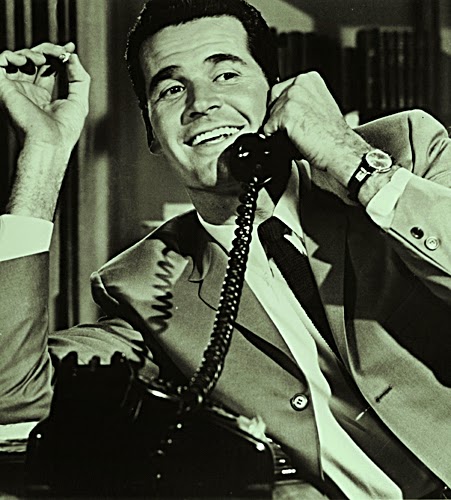Before
Easy Rider portrayed marijuana smoking on film, and long before
American Beauty,
Peter Sellers played an uptight Jewish lawyer whose life is pried open by Leigh-Taylor Young's pot brownies in 1968's
I Love You, Alice B. Toklas!
It was the breakthrough film for Paul Mazursky, who wrote and nearly directed the cult classic. Mazursky died yesterday, and all his obituaries linked him with marijuana because of that film.
Growing up in New York, Mazursky worked as an actor, appearing in the seminal
Blackboard Jungle (1955). Venturing into stand-up comedy and writing, he wrote for Danny Kaye before moving his office to the Sunset Strip, where the hippies he saw inspired his
Toklas screenplay. He followed up with his directorial debut,
Bob & Carol & Ted & Alice (1969), based on experiences he had at Esalen. In that film, unlike
Easy Rider, the women (Natalie Wood and Dyan Cannon) also get in on the pot-smoking fun.
In his 1999 book
Show Me the Magic, Mazursky describes going to the jungle to take Ayahuasca, and mentions that a shamanic healer used tobacco smoke, "not weed," during the journey. Although he describes himself as a "Greenwich Village hipster" (and his mother as "a hipster, a gypsy, a beantik, a hippie"), he doesn't mention that he smoked marijuana himself. Perhaps it went without saying.
Or maybe he preferred psychedelics.
In the book, he describes a very interesting exchange with famed director Federico Fellini, when Mazursky was planning a trip to Italy and wanted to know whether to visit Florence or Venice. "Do you want marijuana or LSD?" Fellini asked. "
Firenze is like marijuana. You will be very happy there.
Venezia is not like any place you have ever experienced. She is like an acid trip." "I think I'll take Venice," Mazursky replied.
George Segal and
Kris Kristofferson, playing the new boyfriend of Segal's ex-wife, smoke together and form a goofy bond in Mazursky's 1973 film
Blume in Love. In his feminist-minded
An Unmarried Woman (1978), a 15-year-old girl (Lisa Lucas) matter-of-factly states, "I smoke pot sometimes" upon meeting her mother's new boyfriend, played by Alan Bates. "I do too," he responds. "Got any?" she asks.
Among the remarkable films Paul Mazursky left us are:
Down and Out in Beverly Hills, Moscow on the Hudson, Harry and Tonto, Enemies: A Love Story and
Moon Over Parador. He even took a stab at Shakespeare in
Tempest
(1982).
Mazursky's voice opens the movie
Antz (1999), playing the psychiatrist who diagnoses the dissatisfied ant Z (Woody Allen) as the insignificant creature he is. But Paul Mazursky was more like what Z becomes, the little guy who broke the mold.
The 2019 movie
The Last Laugh, wherein Andie McDowell turns Chevy Chase onto marijuana and more, and Richard Dreyfus tokes and jokes his way through, is dedicated to Mazursky.







